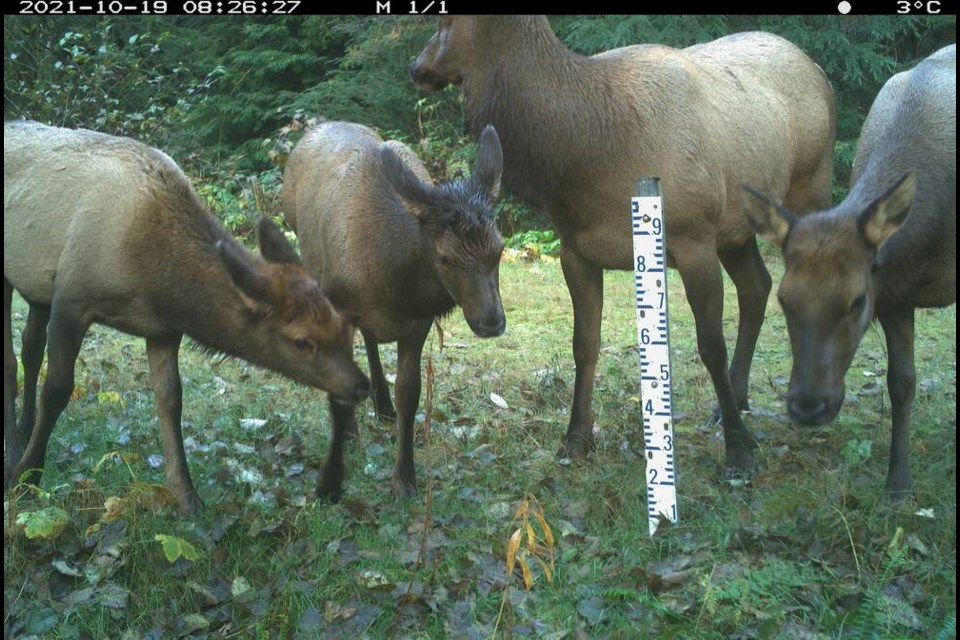Two legs good. But four legs, fins, fur, antlers, feathers and tails are often a lot more attention-grabbing when it comes to news stories on the North Shore. That’s probably not surprising considering local mountains (and waters, and backyards) play host to a plethora of wildlife. Their exploits, and those of humankind’s more domesticated animal friends, frequently took centre stage when it came to interesting reads this year.
Here are some of our favourite animal stories from 2023:
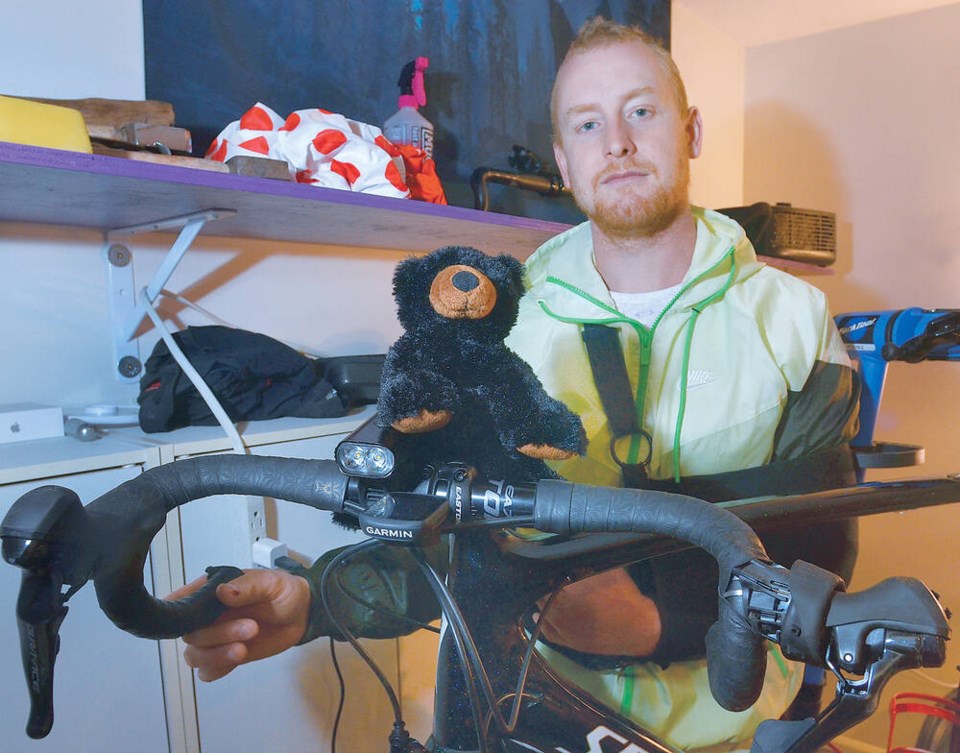
It doesn’t get much more North Shore than this. In May we brought you the story of North Vancouver cyclist Kevin Milner who T-boned a bear in the Lower Seymour Conservation Reserve. When Milner spotted a black bear as he rounded a corner on the trail, he had to make a split-second decision on his exit. Unfortunately, Milner and the bear both chose the same strategy.
Milner hit the bear right behind the shoulder and flipped over the animal.
“I pretty much kissed the bear and then I guess I flew through the air” he told reporter Brent Richter.
“The reason I rode in the demonstration forest is just to get away from the traffic, right?” he said. “But after hitting the bear, I mean, it’s probably safer just riding with cars.”
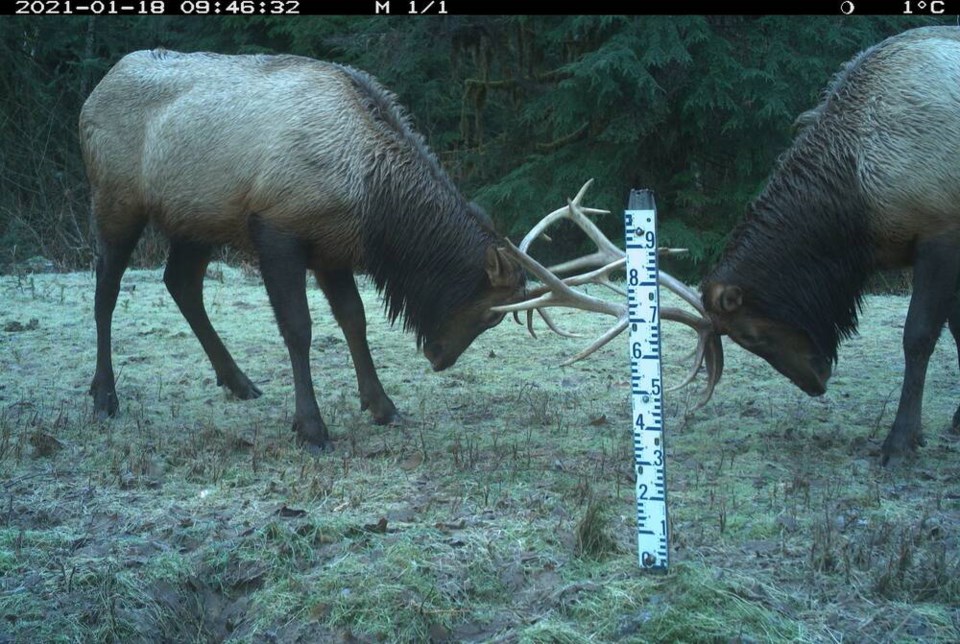
Elk take starring role in Metro’s reality TV
In January, we brought you the story about how wildlife cameras installed within the Seymour and Coquitlam watersheds have captured an abundance of animal activity, including some sightings that have brought a pleasant surprise to local environment enthusiasts and brought a rare glimpse into the secret lives of wildlife in their natural habitats.
The images depict black bears exploring with their cubs or curiously investigating snow stakes, a bobcat trotting through leaves and a cougar making its way through fresh snow. Highlight reels from the forest-mounted reality TV has included a gang of elk, some captured sparring in front of the camera, alongside several lone wolves. That’s an encouraging sign of a healthy ecosystem, worth tuning in for.
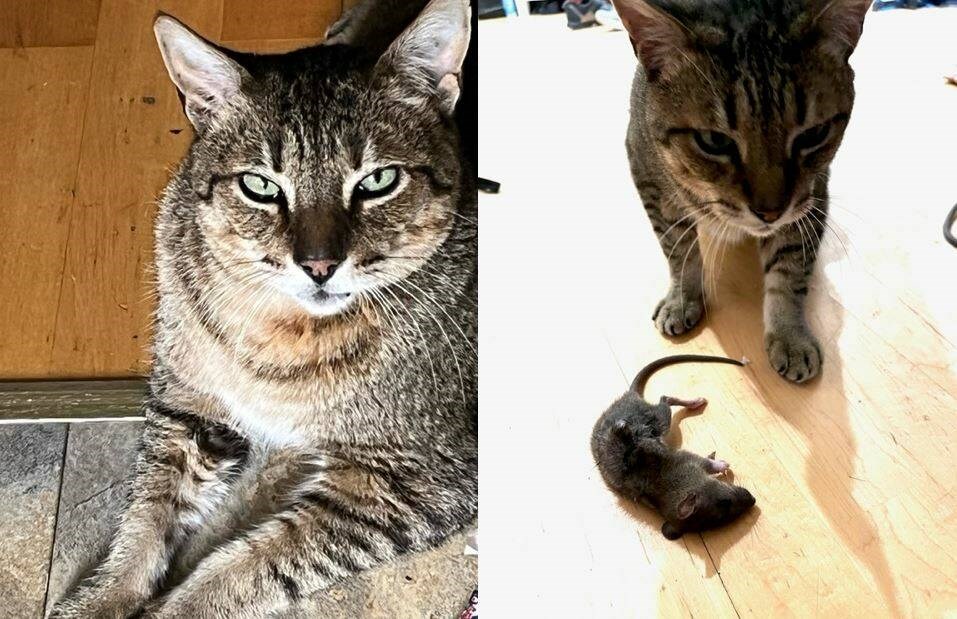
Cat takes paws-itive steps on rat infestation
When a large population of rats, some described as the size of a “fat squirrel” settled into North Vancouver’s Victoria Park and began travelling in packs, alarming residents, Leon, a 13-year-old tabby decided to take matters into his own paws.
Despite no known history of mousing, after news of the rat infestation got out, Leon started presenting dead rats to his owner daily: 15 rats in 15 days. Alarmed by Leon’s sudden killer instinct, his owners tried keeping him inside, but Leon protested. Then they tried to walk him on a leash. You don’t even have to guess at how that went. Eventually they gave in, and let Leon continue to do what comes naturally on his daily park patrols. When our reporters last checked in, Leon’s kill sheet was up to 20 rats. And counting.
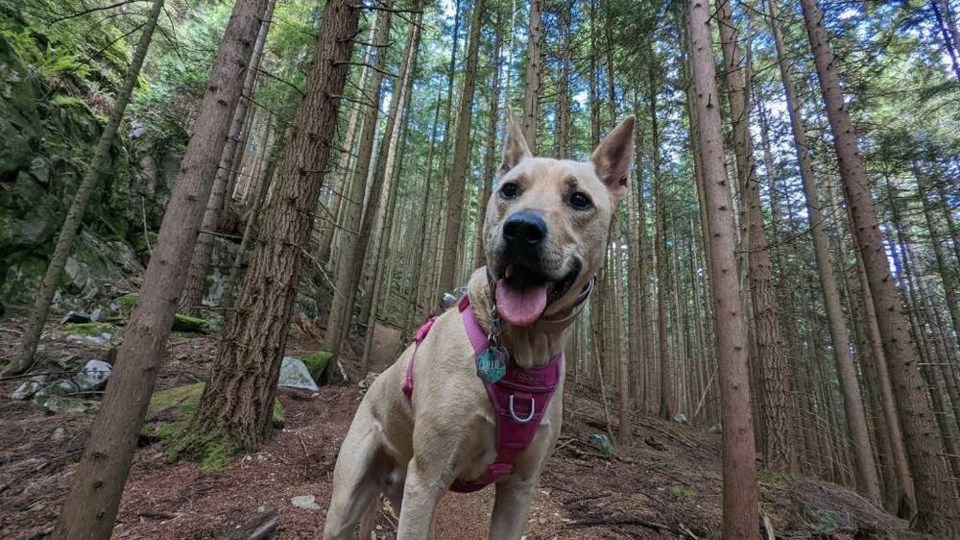
In March, we brought you the story of how Callie, a tan pit bull terrier and German shepherd cross, survived for 28 days in the mountains of Mount Seymour and was reunited with her owner. The four-legged friend had disappeared from the parking lot of the Mt Seymour ski resort the morning of Jan. 29 and was last seen running down a steep and snowy embankment westwards down the mountain.
In the weeks that followed, her devoted owner stopped at nothing to bring her pet home: including going on extensive search trips long into the evening, searching via thermal drone with North Shore Rescue, and even chartering a helicopter. The owner reported on Feb. 25 that the beloved canine had been found.

Man’s best friend was also the subject of a heart-warming story in September about a program that links volunteers to pets-owning seniors who need a hand with walks and trips to the vet. The program can make the difference between seniors being able to keep their beloved companions, or not, while volunteers get fix of wagging tails from their canine charges.
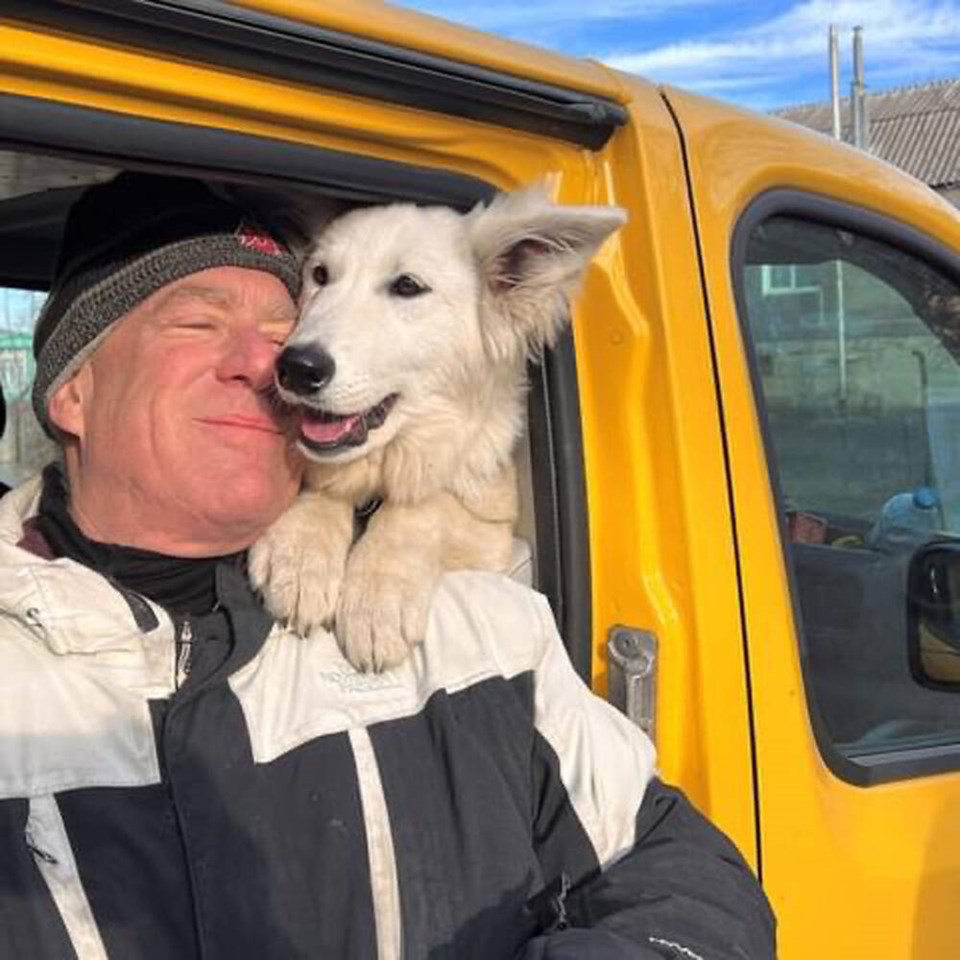
Another West Van volunteer made headlines in September for his work volunteering to help the dogs of war abandoned in the face of the war in Ukraine. Daniel Fine was part of a group committed to spaying and neutering strays to prevent a population explosion of feral pets. “We owe them something,” he said.
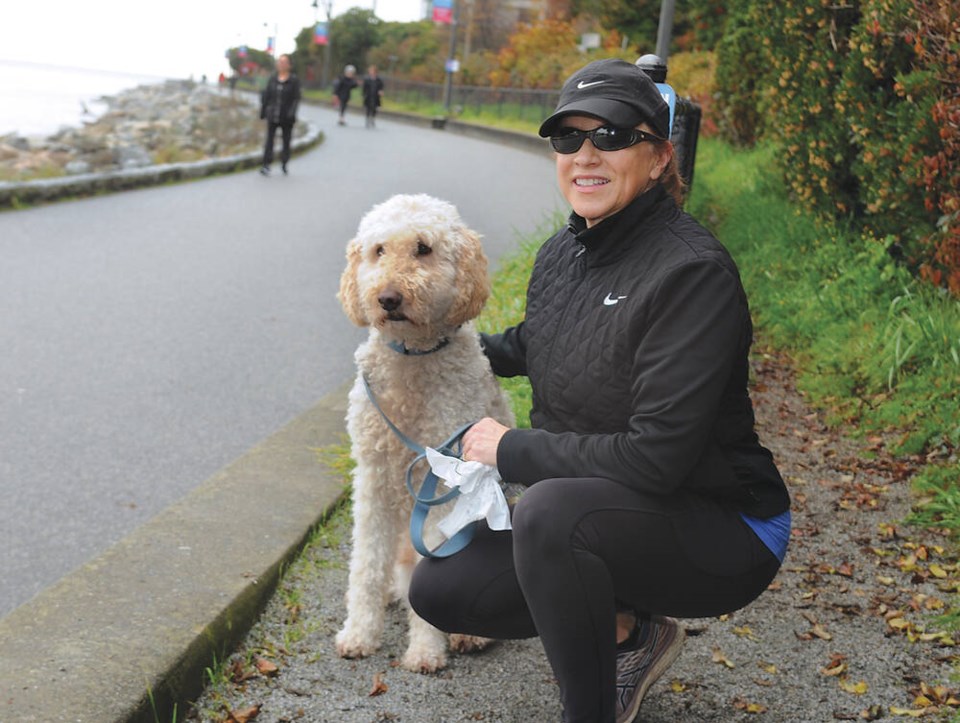
West Van Seawalk goes to the dogs
Finally, West Vancouver council made headlines in November when it voted to loosen the leash on restrictions that have long banned dogs from the oceanfront Seawalk. Couns. Linda Watt and Christine Cassidy shepherded the effort to change the rules, arguing it’s past time that West Vancouver became more Fido friendly. The move spurred passionate responses both from those in favour of more freedom for man’s best friend and those opposed, with the result that owners are now welcome to partner with their on-leash pooches on West Vancouver’s most iconic promenade.
Four-legged creatures didn’t corner the market on animal stories this year, however.
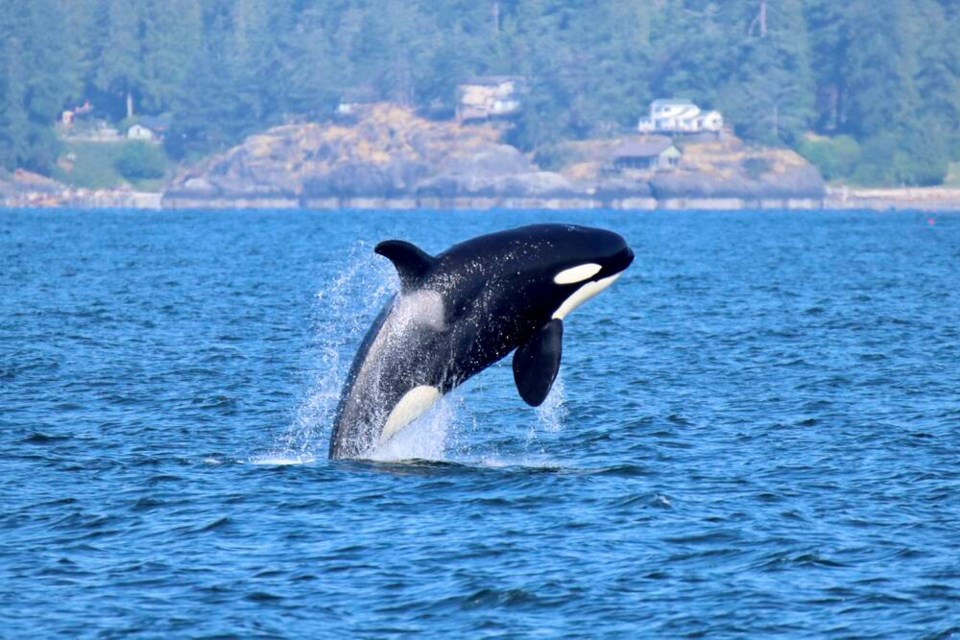
Playful whales delight observers
In the summer, a playful whale nicknamed ‘Indy’ delighted observers at the southern entrance to Howe Sound July 9. Like most coastal orca whales, Indy is identified by scientists and other observers through a combination of dorsal fin size and shape and the makeup of the saddle patch behind the dorsal fin that is unique to each individual.
“So, once you spend enough time around the whales, you can start to recognize them, just like you can recognize different people’s faces, to notice the differences very quickly,” said one whale researcher.
In April, a North Shore paddleboarder who set out for a paddle near Deep Cove also had a very close encounter with a visiting orca whale.
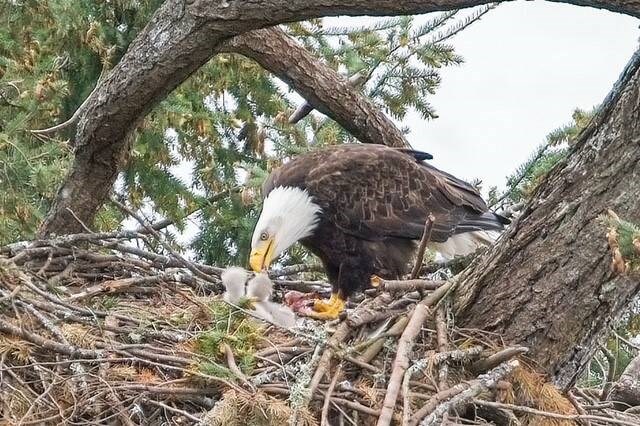
Forget the Santa tracker. How about the North Shore’s first eagle tracker? In January, we brought you the story of how a West Vancouver bald eagle named Annie is now one of a handful in the region whose every movement is tracked by researchers using a backpack-mounted transmitter. Among the secrets the trackers have revealed: eagles can get from here to Alaska in as little as two days, and some travel as far as the Bering Sea.
Annie and her mate are part of a continuous line of eagles that have nested in roughly the same spot in West Vancouver since 1964.
“They’re lovely, magnificent creatures. They’re a top predator. They’re an indication of how the rest of the environment is doing,” said Sally McDermott, North Shore Eagle Network co-ordinator.
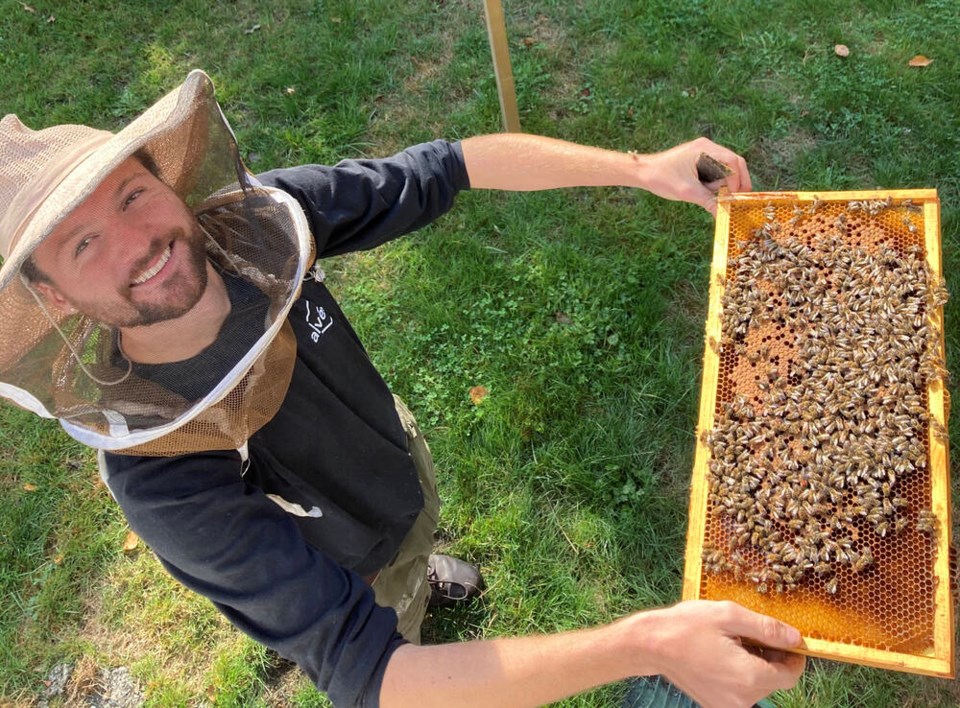
Finally, one of the more unusual stories of year happened in September when someone buzzed off with a beehive from St. Andrew’s United Church in West Vancouver, bees and all.
If the thief had been hoping for honey, they were too late, as the congregation had already harvested and bottled the honey so it can be sold as a church fundraiser for upkeep of the hive.
North Vancouver RCMP described the case of the missing beehive as very unusual.
